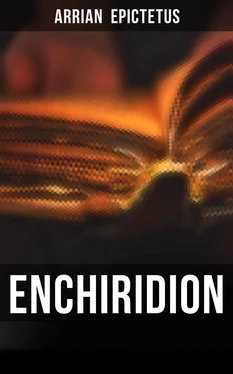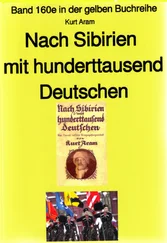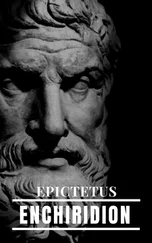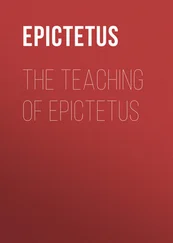Arrian Epictetus
Including The Discourses of Epictetus & Fragments
Published by

Books
- Advanced Digital Solutions & High-Quality eBook Formatting -
musaicumbooks@okpublishing.info
2018 OK Publishing
ISBN 978-80-272-4476-8
Introduction
Enchiridion, or the Manual
Preface
Enchiridion of Epictetus
Discourses, as reported by Arrian
Book 1
Book 2
Book 3
Book 4
Fragments
Table of Contents
Slave, poor as Irus, halting as I trod, I, Epictetus, was the friend of God. 1
Epictetus was a slave woman's son, and for many years a slave himself. 2The tone and temper of his whole life were determined thereby. An all-engulfing passion for independence and freedom so preoccupied him in his youth, that throughout his life he was obsessed with the fear of restraint, and tended to regard mere liberty, even in its negative aspect alone, as almost the highest conceivable good. It is perhaps no less noteworthy that he came from Hierapolis in Phrygia. From of old the Phrygians had conceived of their deities with a singular intensity and entered into their worship with a passion that was often fanaticism, and sometimes downright frenzy. It is, therefore, not unnatural that the one Greek philosopher who, despite the monistic and necessitarian postulates of his philosophy, conceived of his God in as vivid a fashion as the writers of the New Testament, and almost as intimately as the founder of Christianity himself, should have inherited the passion for a personal god from the folk and land of his nativity. 3
Beside these two illuminating facts, the other details of his life history are of relatively little importance. He was owned for a time by Epaphroditus, the freedman and administrative secretary of Nero, and it was while yet in his service that he began to take lessons from Musonius Rufus, the greatest Stoic teacher of the age, whose influence was the dominant one in his career. 4He was of feeble health, and lame, the latter probably because of the brutality of a master in his early years; 5long unmarried, until in his old age he took a wife to help him bring up a little child whose parents, friends of his, were about to expose it; 6so simple in his style of living, that in Rome he never locked the doors of a habitation, whose only furniture was said to be a pallet and a rush mat, and in Nicopolis (in Epirus, opposite Actium) contented himself with an earthenware lamp after the theft of his iron one.
Of the external aspects of his career it should be noted that he had a recognized position as a philosopher when Domitian banished all such persons from Rome (presumably in a.d. 89 or 92); that he settled in Nicopolis, where he conducted what seems to have been a fairly large and well-regarded school; that he travelled a little, probably to Olympia, and certainly once to Athens. 7In this connection it should also be observed that his general literary education was not extensive—Homer, of course, a little Plato and Xenophon, principally for their testimony about Socrates, a few stock references to tragedy, and the professional's acquaintance with the philosophy of the later schools, and this is practically all. It can scarcely be doubted, as Schenkl observes (p. xci), that this literary apparatus comes almost entirely from the extensive collections of Chrysippus. And the same may be said of his aesthetic culture. He seems to have seen and been impressed by the gold-and ivory statues of Zeus and Athena, at Olympia and Athens respectively, but he set no very high value upon the work of artists, for he allowed himself once the almost blasphemous characterization of the Acropolis and its incomparable marbles as "pretty bits of stone and a pretty rock." Epictetus was merely moralist and teacher, but yet of such transcendent attainments as such that it seems almost impertinent to expect anything more of him.
The dates of his birth and of his death cannot be determined with any accuracy. The burning of the Capitol in a.d. 69 was yet a vivid memory while he was still a pupil of Musonius; 8he enjoyed the personal acquaintance of Hadrian, but not of Marcus Aurelius, for all the latter's admiration of him; and he speaks freely of himself as an old man, and is characterized as such by Lucian ( Adv. Indoctum , 13); accordingly his life must have covered roughly the period ca. a.d. 50-120, with which limits the rare and rather vague references to contemporary events agree. He was, accordingly, an almost exact contemporary of Plutarch and Tacitus.
Like Socrates and others whom he admired, he wrote nothing for publication, 9and but little memory would have survived of him had not a faithful pupil, successful as historian and administrator, Flavius Arrian, recorded many a discourse and informal conversation. These are saved to us in four books of Διατριβαί, or Discourses , 10out of the original eight, and in a very brief compendium, the Ἐγχειρίδιον, 11a Manual or Handbook , in which, for the sake of a general public which could not take time to read the larger ones, the elements of his doctrine were somewhat mechanically put together out of verbatim, or practically verbatim, extracts from the Discourses . That Arrian's report is a stenographic 12record of the ipsissima verba of the master there can be no doubt. His own compositions are in Attic, while these works are in the Koine , and there are such marked differences in style, especially in the use of several of the prepositions, as Mücke has pointed out, that one is clearly dealing with another personality. Add to that the utter difference in spirit and tempo, and Arrian's inability when writing propria persona to characterize sharply a personality, while the conversations of Epictetus are nothing if not vivid.
We have, accordingly, in Arrian's Discourses a work which, if my knowledge does not fail me, is really unique in literature, the actual words of an extraordinarily gifted teacher upon scores, not to say hundreds, of occasions in his own class-room, conversing with visitors, reproving, exhorting, encouraging his pupils, enlivening the dullness of the formal instruction, and, in his own parable, shooting it through with the red stripe of a conscious moral purpose in preparation for the problem of right living. 13The regular class exercises were clearly reading and interpretation of characteristic portions of Stoic philosophical works, somewhat as in an oral examination; problems in formal logic, these apparently conducted by assistants, or advanced pupils; and the preparation of themes or essays on a large scale which required much writing and allowed an ambitious pupil to imitate the style of celebrated authors. The Master supervised the formal instruction in logic, even though it might be conducted by others, but there is no indication that he delivered systematic lectures, although he clearly made special preparation to criticize the interpretations of his pupils (I. 10, 8). From the nature of the comments, which presuppose a fair elementary training in literature, we can feel sure that only young men and not boys were admitted to the school, and there are some remarks which sound very much like introductions to the general subject of study, while others are pretty clearly addressed to those who were about to leave—constituting, in fact, an early and somewhat rudimentary variety of Commencement Address . 14Some of the pupils were preparing to teach, but the majority, no doubt, like Arrian, were of high social position and contemplated entering the public service.
Читать дальше













